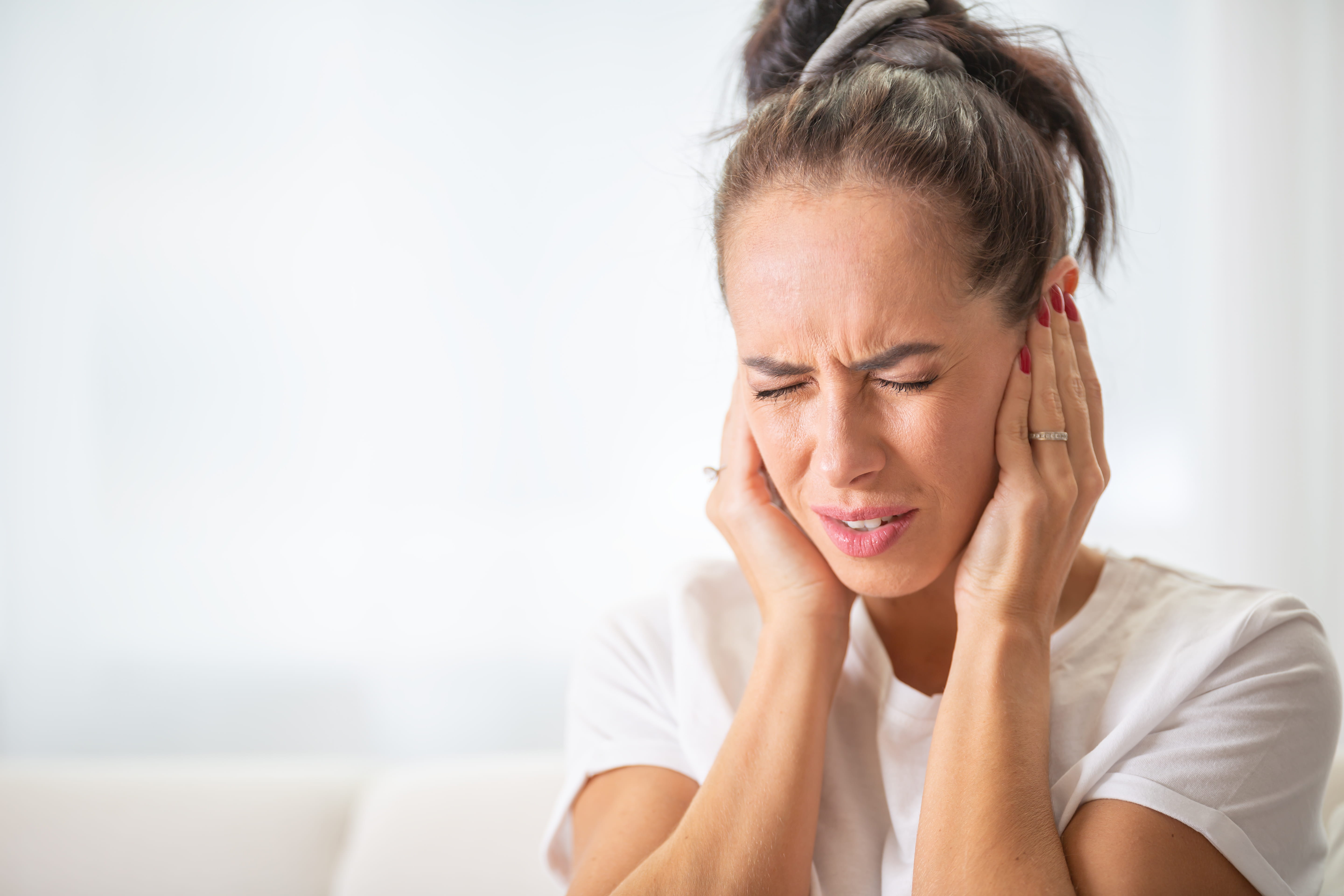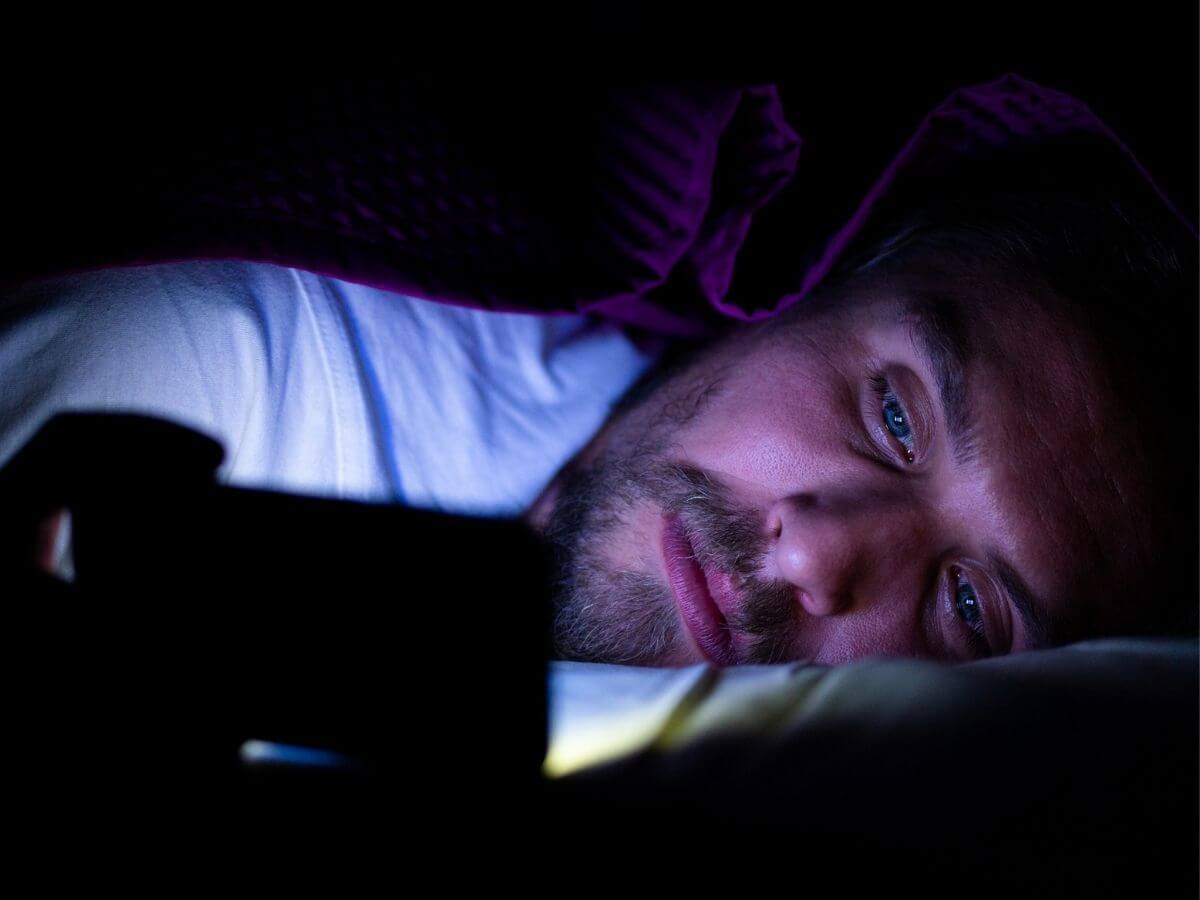Does Tinnitus Cause Insomnia and Other Sleep Problems?

One impact tinnitus can have on your quality of life is it can cause or worsen insomnia. This article addresses tinnitus and sleep problems.
Understanding Tinnitus and Insomnia
Tinnitus may be less noticeable and disruptive during the day in environments with background noise. However, nighttime is a different story for many people.As daily activities wrap up and your home gets quiet, tinnitus may seem to get louder. Consequently, you might find it distracting and struggle to fall asleep.
The Connection Between Tinnitus and Insomnia
Not everyone who has tinnitus has insomnia, and vice versa. But if you’re dealing with tinnitus and insomnia, you may find that issues worsen one another.For example, you might wake up more frequently at night and then have trouble falling asleep again because of the noise in your head. As a result, you’re more fatigued during the day, which can make your tinnitus feel more overwhelming.
That stress can add another element to the equation, as you’re now faced with tinnitus, anxiety, and insomnia. And then, some people have tinnitus and sleep apnea, which produces a different set of challenges.
Common Causes of Tinnitus and Insomnia
Several underlying conditions can cause you to develop tinnitus, including:
- Age-related hearing loss
- Ear injuries
- Circulatory problems
Insomnia also has multiple potential causes, such as:
- Shift work
- Poor sleeping environment (too light, loud, warm, etc.)
- Poor sleep habits, like not keeping a consistent sleep schedule
- Consuming alcohol, nicotine, or caffeine before bedtime
- Mental health conditions like depression, anxiety, and schizophrenia
Because many factors affect tinnitus and sleep disturbance, it can be challenging to sort through them and understand how they affect one another on your own. Fortunately, your doctor can determine if tinnitus is causing insomnia for you and prescribe treatments for one or both issues.
Diagnosis and Treatment
Doctors diagnose tinnitus based primarily on the patient’s symptoms — hearing noise that isn’t present in the environment. If you see your provider about tinnitus, describing the noise you hear as accurately as possible is important.
For example, do you hear low- or high-pitched ringing? Clicking? Humming, pulsing, or rushing sounds? The type of noise you hear can help your doctor pinpoint the cause.
Your physician may also recommend tests to rule out specific tinnitus causes. These assessments include:
- An audiological exam to check your hearing
- Imaging tests like MRI or CT scans
- Blood tests to check for conditions like heart disease, vitamin deficiencies, thyroid issues, and anemia
- Checking movements like shifting your eyes, clenching your jaw, moving your head, neck, arms, and legs, etc., to determine if you have any disorders that require treatment
There are several ways to treat tinnitus, including:
- Wearing hearing aids for age-related hearing loss
- Removing earwax blockages if present
- Addressing conditions affecting the blood vessels
- Using a white noise machine, fan, or another device that makes a soft, consistent sound that can mask tinnitus noise
- Using special in-ear devices that produce a masking noise
- Getting tinnitus retraining therapy (TRT) and cognitive behavioral therapy (CBT) from a trained professional make tinnitus symptoms less concerning.
- Taking medication to treat anxiety or depression, which can contribute to tinnitus
- Experimenting with tinnitus and sleeping positions that make the noise less noticeable
Treatments for insomnia include:
- Improving sleep hygiene (i.e., the conditions in your bedroom)
- Eliminating caffeine, nicotine, and alcohol consumption near bedtime
- Getting regular daytime exercise
- Treating medical conditions that cause pain or discomfort
- Avoiding large evening meals
- Nighttime relaxation techniques and routines
- Avoiding screen time in the hours leading up to bedtime
- Aromatherapy with scents that promote relaxation
- Sleep medication
Get Help with Tinnitus and Insomnia
Tinnitus and insomnia are conditions that “feed off” one another and can make life miserable. But the good news is that you can take steps to address the two issues simultaneously and enjoy improvements in both areas. And you don’t have to do it alone!Talk with your Baptist Health doctor about tinnitus causing insomnia or other sleep problems. They can diagnose your issues and recommend treatment, including potentially working with an audiologist.


.jpg?rev=0669da79ee4e481d979a4d08cce4c175)
